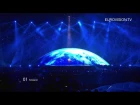Recherches associées:
Stuðmenn
Sálin Hans Jóns Míns
Vilhjálmur Vilhjálmsson
Nýdönsk
Björgvin Halldórsson
Oskar Werner | fr
Páll Óskar Hjálmtýsson (born 16 March 1970), known internationally as Páll Óskar and Paul Oscar, is an Icelandic pop singer, songwriter and disc jockey. Páll Óskar's musical range spans traditional Icelandic songs, ballads, love songs, disco, house and techno. He released his first album, Stuð, in 1993 while in New York City, and also sang with Icelandic groups Milljónamæringarnir (The Millionaires) and Casino while establishing a career as a solo artist. His album of ballads, Palli, was the best-selling Icelandic album of 1995. Páll Óskar came to international attention when he performed Minn hinsti dans ("My Final Dance"), Iceland's entry...
OSKAR may refer to:
A) A Russian Pop Star
B) OSKAR is an incongruous collaboration between former Collapsed Lung bassist and fine artist Jonny Dawe and former Strangelove keyboard player and soundtrack composer Nick Powell, that feels comfortable calling itself art rock, and drawing on sources such as Krautrock, systems composers Michael Nyman and Steve Reich, Sonic Youth, folk-psych and ambient musics.
OSKAR was originally formed not to rock the world in a dazed'n'confused manner, but in order to create an original soundtrack for performance art group The Max Factory, which was performed throughout Europe. Other OSKAR projects include the...
Andreas Werner is one of today’s most prolific figures in the incredible Techno universe of Cologne. He encapsulates a delicate rhythmic sound and expression that is best exemplified in his 12” Zwrtshak Drive—a favourite among artists such as Guido Schneider, Richie Hawtin or Ricardo Villalobos on his most recent tour. It was also a #1 selection in the German publication Groove Magazine. Supported over the last few months by Triple R (head of the Traum label) under his pseudonym Audio Werner, Andreas has developed a sound that has renewed and continued the refined Techno tradition in Cologne—the flagship European city...
LEE OSKAR (1948.03.24/Copenhagen, Denmark - ) is a harmonica player born in Copenhagen, Denmark in 1948, Oskar was six years old when a family friend gave him his first harmonica. "Everyone in my neighborhood was playing one that year," he remembers. "The next year, the fad was the yo-yo, but I had fallen in love with the harmonica, and stuck with it." He grew up listening to Danish radio, enjoying all types of music and cites Ray Charles as the biggest influence from that period.
Oskar moved to the United States at the age of 18 with little more than...





